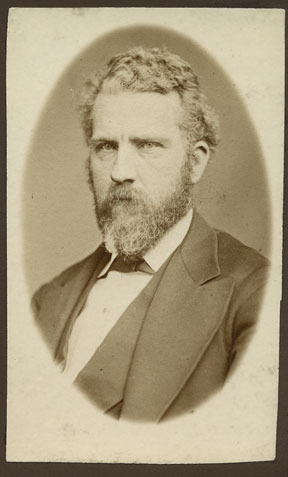The large Civil War hospitals are not standing anymore. After all, they were built as short-term solutions and not intended to be permanent. In many cases there are interpretive signs identifying locations. At Mount Jackson there are three markers for the Confederate Hospital that stood there!
Alexandria, Virginia (my hometown for many years) was busy during the Civil War, a Union Army stronghold in Virginia and site of many hospitals during the war. (See Voices from the Past.) Growing up in that area made it easy to become aware of the Civil War, and that's where I first developed an interest in history. I became aware of the role of hospitals there as a volunteer with Alexandria Archaeology and also as a participant in Civil War Field Trips. (Unfortunately this part of my life was pre-blogging so it's not documented here. Maybe someday...)
 |
| Dr. J. Suiter |
My father's sister, who was the genealogist in the family, linked her mother's side of the family to William Morton, a key figure in the development of ether as an anesthetic. Ether and chloroform were important in Civil War surgery.
I knew even less about my mother's ancestors. Mom had mentioned that her grandmother once lived near Xenia, Ohio and talked about riding there in a horse-drawn wagon. This only came up when my daughter decided to go to college near there (at Antioch). And Grandmother Hammer had mentioned that an ancestor was a Presbyterian minister. It wasn't until 2010 that I looked up great-great-grandfather Robert Harper and found that he was not only a minister, but during the Civil War he was in charge of a hospital at Camp Dennison, Ohio. So I guess my interest in Civil War Medicine comes naturally!
Earlier Post: Chimborazo Hospital Complex, Richmond















































